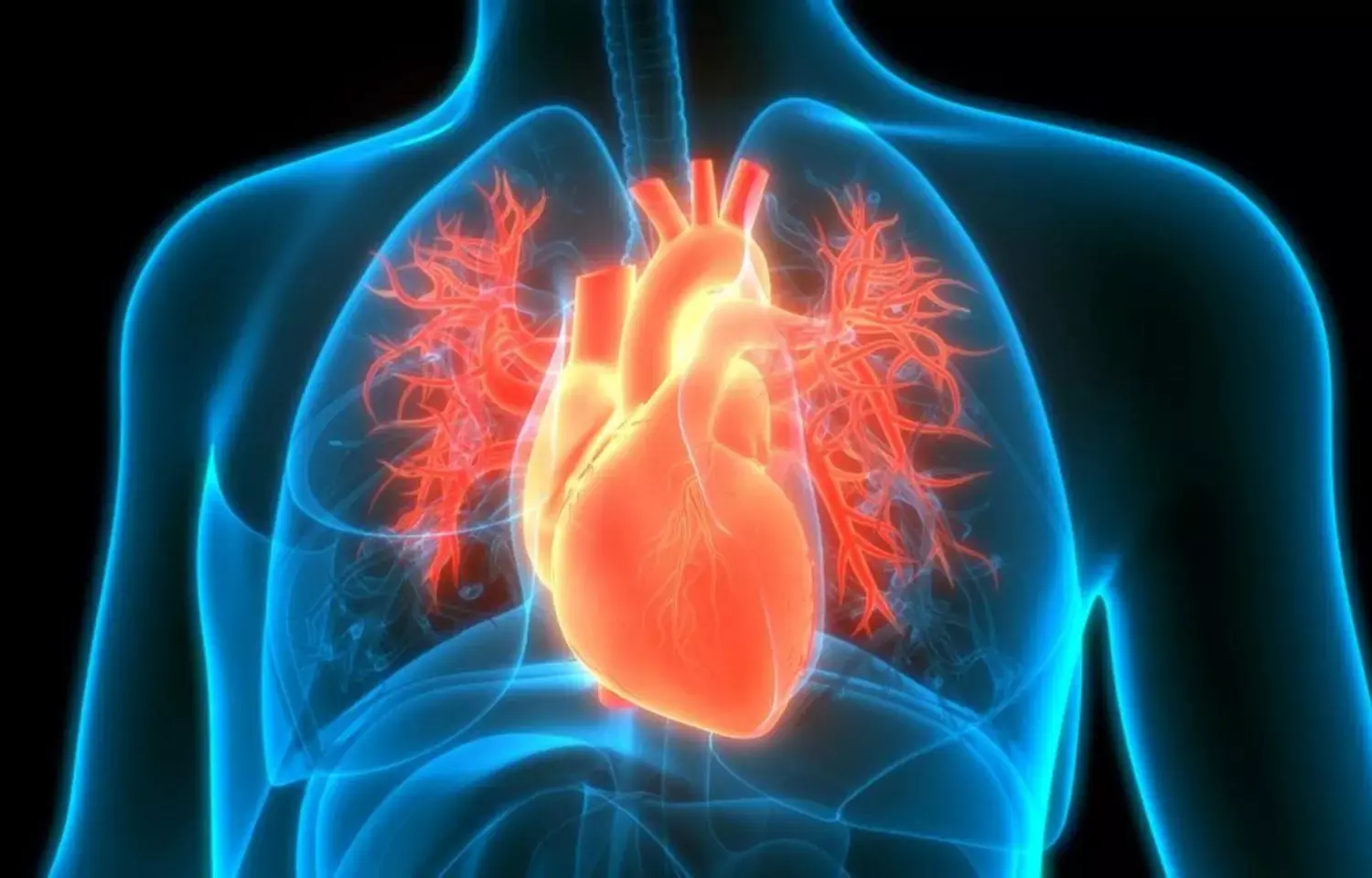- Home
- Medical news & Guidelines
- Anesthesiology
- Cardiology and CTVS
- Critical Care
- Dentistry
- Dermatology
- Diabetes and Endocrinology
- ENT
- Gastroenterology
- Medicine
- Nephrology
- Neurology
- Obstretics-Gynaecology
- Oncology
- Ophthalmology
- Orthopaedics
- Pediatrics-Neonatology
- Psychiatry
- Pulmonology
- Radiology
- Surgery
- Urology
- Laboratory Medicine
- Diet
- Nursing
- Paramedical
- Physiotherapy
- Health news
- Fact Check
- Bone Health Fact Check
- Brain Health Fact Check
- Cancer Related Fact Check
- Child Care Fact Check
- Dental and oral health fact check
- Diabetes and metabolic health fact check
- Diet and Nutrition Fact Check
- Eye and ENT Care Fact Check
- Fitness fact check
- Gut health fact check
- Heart health fact check
- Kidney health fact check
- Medical education fact check
- Men's health fact check
- Respiratory fact check
- Skin and hair care fact check
- Vaccine and Immunization fact check
- Women's health fact check
- AYUSH
- State News
- Andaman and Nicobar Islands
- Andhra Pradesh
- Arunachal Pradesh
- Assam
- Bihar
- Chandigarh
- Chattisgarh
- Dadra and Nagar Haveli
- Daman and Diu
- Delhi
- Goa
- Gujarat
- Haryana
- Himachal Pradesh
- Jammu & Kashmir
- Jharkhand
- Karnataka
- Kerala
- Ladakh
- Lakshadweep
- Madhya Pradesh
- Maharashtra
- Manipur
- Meghalaya
- Mizoram
- Nagaland
- Odisha
- Puducherry
- Punjab
- Rajasthan
- Sikkim
- Tamil Nadu
- Telangana
- Tripura
- Uttar Pradesh
- Uttrakhand
- West Bengal
- Medical Education
- Industry
Cardiac MRI can successfully evaluate treatment response in cardiac amyloidosis: Study

UK: Cardiovascular magnetic resonance (CMR) plays a unique role in assessing treatment response in cardiac amyloidosis. CMR demonstrates regression of cardiac amyloid deposits following chemotherapy, but only in patients achieving a deep and rapid hematological response, states an article published in the European Heart Journal.
Light-chain cardiac amyloidosis (stiff heart syndrome) occurs when plaques of a protein called amyloid build up in the heart muscle, affecting its ability to pump blood. If left untreated it can rapidly lead to heart failure and death. Chemotherapy is considered the standard of care for most patients and it has nearly doubled the median survival rate over the past decade. The serum concentration of Brain natriuretic peptides has a key role in the management of patients with AL amyloidosis, as it helps to assess patients' prognosis and treatment response. However, elevation in brain natriuretic peptide levels represents the final common pathway of several other mechanisms, so they do not represent cardiac amyloid burden accurately.
Cardiovascular magnetic resonance with tissue characterization is a sensitive tool for detecting myocardial amyloid deposits. T1 mapping with extracellular volume (ECV) measurement enables tracking markers of disease severity and improves diagnostic accuracy and patient stratification. Previous studies have shown its potential to track changes in response to treatment.
Ana Martinez-Naharro, University College London, Royal Free Hospital, UK, and colleagues conducted a study to assess the ability of CMR to (i) measure changes in response to chemotherapy; (ii) assess the correlation between hematological response and changes in extracellular volume (ECV); and (iii) assess the association between changes in ECV and prognosis over and above existing predictors.
Researchers assessed 176 patients with cardiac AL amyloidosis using serial N-terminal pro-B-type natriuretic peptide (NT-proBNP), echocardiography, free light chains, and CMR with T1 and ECV mapping at diagnosis and subsequently 6, 12, and 24 months after starting chemotherapy. The hematological response was graded as complete response (CR), very good partial response (VGPR), partial response (PR), or no response (NR). CMR response was graded by changes in ECV as progression (≥0.05 increase), stable (<0.05 change), or regression (≥0.05 decrease).
Key findings of the study,
• At 6 months, CMR regression was observed in 3% (all CR/VGPR) and CMR progression in 32% (61% in PR/NR; 39% CR/VGPR).
• After 1 year, 22% had regression (all CR/VGPR), and 22% had progression (63% in PR/NR; 37% CR/VGPR).
• At 2 years, 38% had regression (all CR/VGPR), and 14% had progression (80% in PR/NR; 20% CR/VGPR).
• 25% of the patients died during follow-up (40 ± 15 months); CMR response at 6 months predicted death (progression hazard ratio 3.82) and remained prognostic after adjusting for the hematological response, NT-proBNP, and longitudinal strain.
The authors conclude that cardiac amyloid deposits frequently regress following chemotherapy, but only in patients who achieve complete response(CR) or very good partial response (VGPR). Also, the study showed that changes in ECV predict outcomes after adjusting for known predictors.
Reference:
Ana Martinez-Naharro, Rishi Patel, Tushar Kotecha, Nina Karia, Adam Ioannou, Aviva Petrie, Liza A Chacko, Yousuf Razvi, Sriram Ravichandran, James Brown, Steven Law, Cristina Quarta, Shameem Mahmood, Brendan Wisniowski, Silvia Pica, Sajitha Sachchithanantham, Helen J Lachmann, James C Moon, Daniel S Knight, Carol Whelan, Lucia Venneri, Hui Xue, Peter Kellman, Julian D Gillmore, Philip N Hawkins, Ashutosh D Wechalekar, Marianna Fontana, Cardiovascular magnetic resonance in light-chain amyloidosis to guide treatment, European Heart Journal, 2022; ehac363, https://doi.org/10.1093/eurheartj/ehac363
BDS
Dr. Hiral patel (BDS) has completed BDS from Gujarat University, Baroda. She has worked in private dental steup for 8years and is currently a consulting general dentist in mumbai. She has recently completed her advanced PG diploma in clinical research and pharmacovigilance. She is passionate about writing and loves to read, analyses and write informative medical content for readers. She can be contacted at editorial@medicaldialogues.in.
Dr Kamal Kant Kohli-MBBS, DTCD- a chest specialist with more than 30 years of practice and a flair for writing clinical articles, Dr Kamal Kant Kohli joined Medical Dialogues as a Chief Editor of Medical News. Besides writing articles, as an editor, he proofreads and verifies all the medical content published on Medical Dialogues including those coming from journals, studies,medical conferences,guidelines etc. Email: drkohli@medicaldialogues.in. Contact no. 011-43720751


